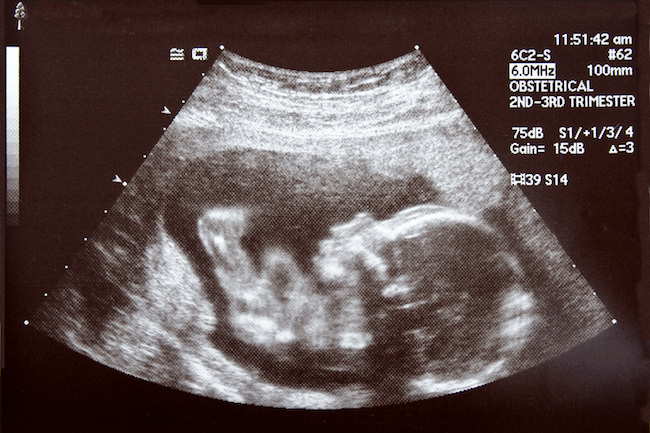When I served at the Vatican’s Pontifical Council for the Family, a frequent theme that came up in meetings with pro-life leaders from around the world was the special importance of the Feast of the Annunciation for the pro-life movement, and a desire to see that day given even more prominence in the celebrations of the Church.
The March 25 feast day also has been celebrated in recent years as the Day of the Unborn Child. Falling exactly nine months before Christmas, the day invites us to focus on the baby in the womb, and reminds us that Jesus was once an unborn child himself.
The Annunciation, when the Virgin Mary is told she has been chosen to be the Mother of the Savior, constitutes the moment when “the Word became Flesh.” The eternal Son of God began existing as a human being not at his birth at Bethlehem, but within the womb of Mary.
The observance of the Day of the Unborn Child began in El Salvador in 1993, and since then, numerous nations, either by decree of the government or the Church, have recognized this special day. This year, a coalition of pro-life leaders urged its observance in the United States (see www.DayOfTheUnborn.com).
God was once an unborn child. Every unborn child, therefore, is in some fashion united with God. As the Second Vatican Council asserted, “By his incarnation the Son of God has united himself in some fashion with every human being” (Pastoral Constitution on the Church in the Modern World Gaudium et Spes, 22).
SUPPORT LIFENEWS! If you like this pro-life article, please help LifeNews.com with a donation!
In the writings of the Fathers of the Church, we encounter reflections on the theme that Christ redeemed us by assuming all the different aspects of our life on earth, including our childhood, our life of work, our family life, our sufferings, and our death. In an age when, as St. John Paul said, “it is possible to speak in a certain sense of a war of the powerful against the weak” (The Gospel of Life, 12), we should also reflect on the fact that the Son of God shared in our life in the womb.
Would it long be possible for believers, who meditate on the unborn child who was God, to fail to see that unborn children are made in God’s image? Would it be likely that those who ponder that our Almighty Protector was a baby in the womb will fail to see that babies in the womb deserve protection? Would it happen that Christians, who acknowledge that their Lord and Brother was an embryo and fetus, will fail to see that every embryo and fetus is a brother and sister in the Lord?
Yet the marvels revealed by the Annunciation do not stop there. There is also the mystery of Mary’s freedom, her “Fiat” — “Let it be done to me according to your word” (Lk. 1:38). This is freedom of choice which serves the truth, as opposed to “pro-choice” which claims to create its own truth. This is choice at the service of life, rather than the perverted choice to take life. This is the moment when Mary gave her body to the One who would bring life to the world by saying “This is My Body,” forever undoing the sin of those who justify abortion by saying, “This is my body!”
As we celebrate the Annunciation this year, I urge all people of faith to also observe the declaration of March 25 as the Day of the Unborn Child. Let us recommit ourselves to love and serve the weakest among us!








